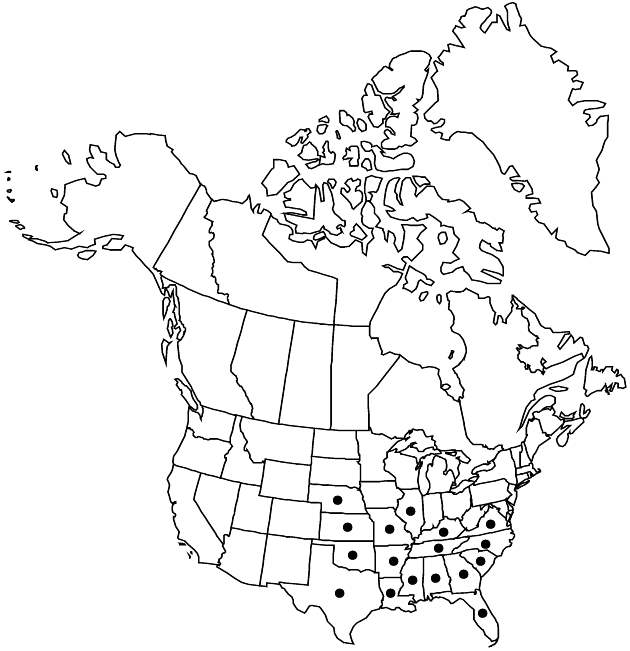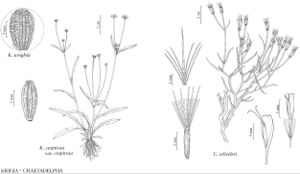Krigia cespitosa var. cespitosa
Involucres 2–4.5 mm in flower, 3.5–5 mm in fruit. Ligules 2–6 mm. 2n = 8.
Phenology: Flowering Feb–Sep.
Habitat: Sandy, clay, gravel, and loam soils, pastures, prairies, hillsides, roadsides, cultivated fields, and open mixed mesophytic, oak-pine, and oak-hickory woods and Coastal Plain pine communities
Elevation: 0–500 m
Distribution

Ala., Ark., Fla., Ga., Ill., Kans., Ky., La., Miss., Mo., Nebr., N.C., Okla., S.C., Tenn., Tex., Va., Mexico (Nuevo León).
Discussion
Variety cespitosa is known from the Eastern deciduous forest biome, southeastern Coastal Plain, tallgrass prairie, and mixedgrass prairie. Throughout its wide range, this variety is recognizable by its relatively small heads and florets barely surpassing the phyllaries. In eastern Texas and adjacent Louisiana and Oklahoma it is sympatric with the larger-headed, more showy-flowered var. gracilis, and plants of intermediate size frequently have been observed (K. J. Kim and B. L. Turner 1992). The treatment of the two morphologic races as varieties is an alternative to their being reduced to formae, which was the approach used by Kim and Turner.
Selected References
None.
